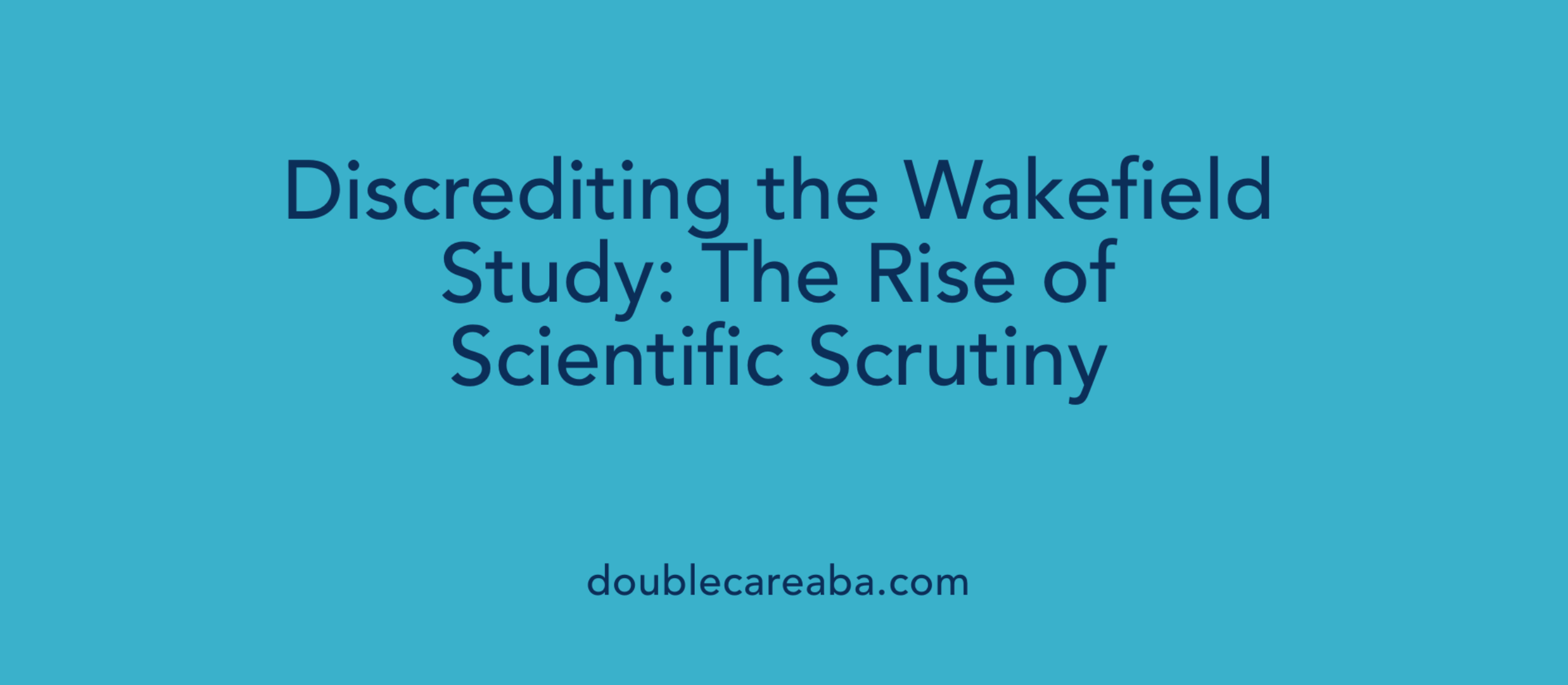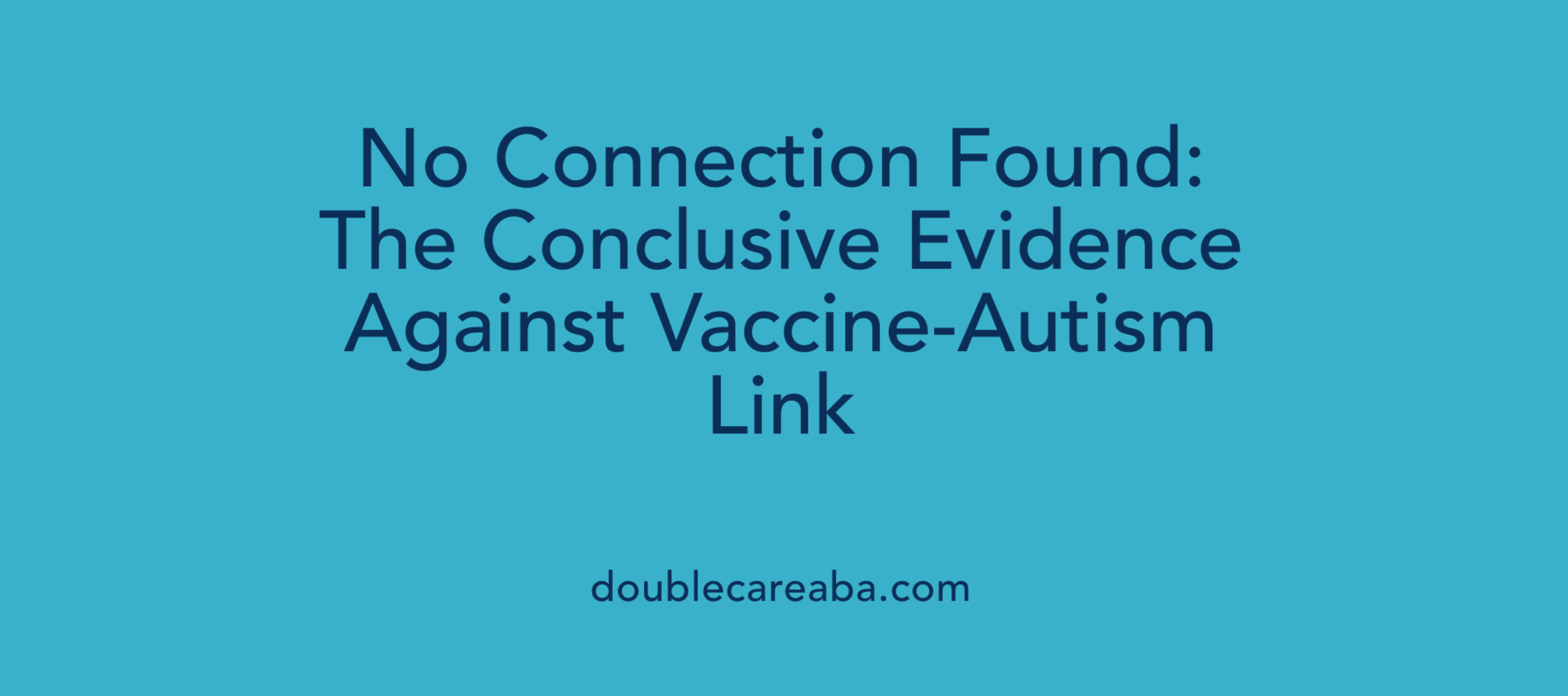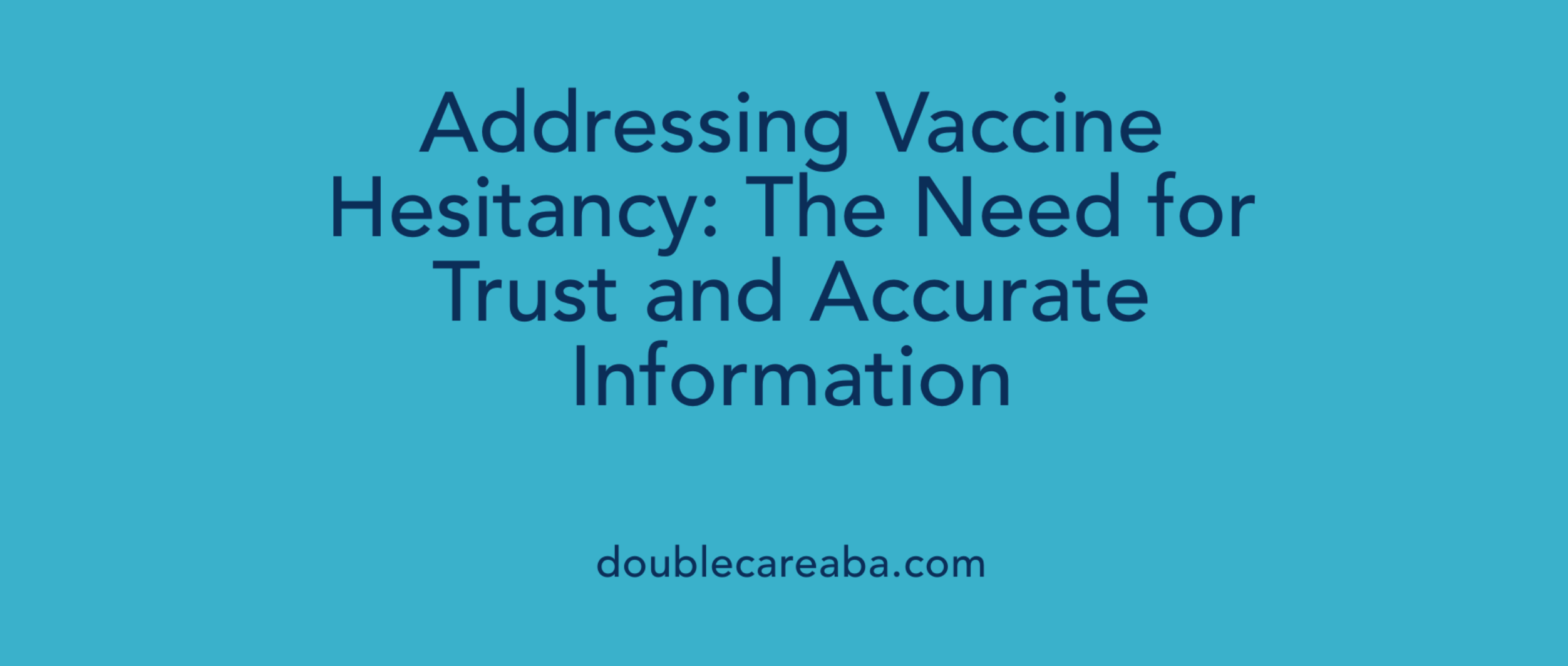Understanding the Truth About Vaccines and Autism
The concern that vaccines might cause autism has persisted for decades, leading to widespread confusion and vaccine hesitancy. With a large body of scientific research, health authorities worldwide have consistently found no credible evidence linking vaccines to autism spectrum disorder (ASD). This article aims to clarify the scientific consensus, dispel myths, and educate the public on the safety of vaccines, as well as explore the actual causes of autism. Through a detailed review of rigorous studies and ongoing research, we will provide comprehensive answers to common questions and highlight the importance of vaccination for individual and public health.
Historical Context and Initial Claims

Where did the idea that vaccines cause autism come from?
The hypothesis linking vaccines to autism emerged from a study published in 1998 by Andrew Wakefield. This study suggested a connection between the MMR (measles, mumps, and rubella) vaccine and the development of autism in children. The research gained widespread attention and fueled fears that vaccination might be unsafe.
What happened to the Wakefield study?
Despite its initial impact, further investigation revealed serious flaws in Wakefield's methodology and conduct. Multiple experts critiqued the study for biased data collection, small sample size, and failure to follow proper scientific protocols. As a result, the study was officially retracted in 2010.
The General Medical Council also found Wakefield guilty of professional misconduct, leading to the loss of his medical license. This discrediting marked a turning point, clarifying that the original claims could not be trusted.
How did misconceptions affect public perception?
Initial concerns from Wakefield’s now-discredited study led to a surge in vaccine hesitancy among parents. Misinformation spread quickly via media and social networks, causing some to refuse vaccinations for their children.
This decline in vaccination rates threatened herd immunity, increasing the risk of outbreaks of preventable diseases.
Scientific evidence addressing the claim
Extensive research from around the world has shown no link between vaccines and autism. Studies analyzing data from countries such as the US, UK, Denmark, and Canada have consistently found no association.
Organizations like the CDC, the Institute of Medicine, and the World Health Organization emphasize that vaccines are safe and effective.
Multiple large-scale epidemiological studies, meta-analyses, and reviews have reinforced that vaccines, including those with thimerosal or numerous antigens, do not cause autism.
In summary, the initial claim originated from a flawed study that was later thoroughly discredited. Current scientific consensus firmly states that vaccines do not cause autism, and ongoing research continues to support vaccine safety.
Scientific Evidence and Large-Scale Studies

What does scientific research say about the relationship between vaccines and autism?
Extensive research over the past few decades has consistently shown that vaccines do not cause autism. The initial hypothesis linking vaccines, specifically the MMR vaccine, to autism originated from a study published in 1998 by Andrew Wakefield. This study was later retracted due to significant flaws in methodology and ethical misconduct, casting serious doubt on its findings.
Multiple large-scale epidemiological studies across various countries, including the United States, Denmark, the United Kingdom, and Canada, have thoroughly examined the potential links between vaccines and autism. These studies analyze data from hundreds of thousands of children and consider factors like genetic predisposition, prenatal exposures, and environmental influences.
Findings from these studies reveal no credible evidence that vaccines are associated with an increased risk of autism spectrum disorder (ASD). For example, research focusing on the timing of autism diagnosis—typically between 12 and 24 months—shows that symptoms often manifest before children receive many of their vaccinations, indicating that vaccination does not trigger autism.
In addition, investigations into vaccine ingredients such as thimerosal, a mercury-based preservative once used in some vaccines, have found no causal relationship with autism. The 2004 Institute of Medicine review concluded that available evidence favors rejection of any connection between thimerosal-containing vaccines and ASD. Similarly, studies examining the number of antigens in vaccines during early childhood have found no association with ASD diagnoses.
Meta-analyses that pool data from multiple large-scale studies further reinforce these findings. These comprehensive reviews show no evidence of increased autism risk linked to any vaccine ingredients or vaccination schedules.
Overall, the consensus among scientists and health authorities, including the Centers for Disease Control and Prevention (CDC) and the American Academy of Pediatrics, is clear: vaccines are safe, effective, and do not cause autism. Continued research maintains this stance, emphasizing the importance of vaccination for preventing serious, potentially fatal diseases.
Study TypeKey FindingsReference CountrySample SizeAdditional NotesEpidemiological studiesNo link between vaccines and autismUS, Denmark, UK, CanadaHundreds of thousandsConfirmed across diverse populationsIngredient analysisNo connection with thimerosal or other componentsGlobalMultiple datasetsThimerosal eliminated from vaccines without changes in autism ratesMeta-analysesReinforces lack of associationGlobalMultiple large datasetsSupports safety of vaccines regarding autism
In summary, scientific evidence robustly demonstrates that vaccines do not cause autism. Misinformation fueled by discredited studies has been thoroughly debunked through rigorous research, continuously affirming vaccine safety and their vital role in public health.
Understanding Autism: Causes and Contributing Factors

What are the main causes of autism spectrum disorder?
Autism spectrum disorder (ASD) is primarily linked to differences in how the brain develops. Researchers agree that both genetic and environmental factors play a role in shaping these neural differences.
Genetic influences are significant. Many studies show that inherited gene mutations, chromosomal conditions such as fragile X syndrome, and a family history of autism increase the likelihood of developing ASD. Twin studies have particularly highlighted the strong genetic component, revealing that if one twin has autism, the chance of the other also being affected is quite high.
Environmental factors aside from genetics can also influence the risk. These include advanced parental age at conception, prenatal exposure to air pollution or pesticides, maternal health issues like diabetes or obesity, and complications during birth such as oxygen deprivation. Exposure to certain toxins or medications during pregnancy may also contribute.
These influences mainly impact early brain development, affecting how neurons grow, connect, and communicate between different regions. Disruptions in these processes can lead to the social, communicative, and behavioral characteristics associated with ASD.
No single factor has been definitively identified as the cause of autism. Rather, it appears to result from a complex interplay of multiple genetic and environmental influences. Current research continues to uncover how these factors interact and influence neurodevelopment, with the ultimate goal of better understanding and supporting individuals with ASD.
Addressing Parental Concerns and Misinformation
Why do some parents choose not to vaccinate their children?
Many parents opt against vaccinating their children due to concerns rooted in safety worries. These fears often involve potential side effects, both immediate and long-term, and concerns about vaccine ingredients. Misinformation spread through media reports and social media platforms can amplify these fears, making them seem more immediate or credible than scientific evidence suggests.
Distrust also plays a significant role. Some parents question the motives and transparency of government agencies, pharmaceutical companies, and health authorities, leading to skepticism about vaccine safety and efficacy. This mistrust can be exacerbated by stories of adverse events, misunderstood scientific data, or conspiracy theories.
Additionally, perceptions of low disease risk influence decisions. Some parents believe their children are not at significant risk of contracting preventable illnesses, or they think their child's immune system is strong enough to fight off diseases without vaccination. Cultural or religious beliefs may also oppose vaccines, especially concerning specific ingredients or the preference for natural remedies.
Information gaps further contribute to vaccine hesitancy. When parents lack access to clear, trustworthy guidance from healthcare providers, they may turn to other sources of information that emphasize potential risks. This sense of uncertainty reinforces hesitation.
Overall, vaccine refusal is shaped by multiple factors, including safety concerns, distrust in institutions, cultural beliefs, and informational challenges. Combating this hesitancy involves providing transparent, evidence-based information and building trust between healthcare providers and communities.
Risks of Not Vaccinating and Protecting Community Health
What are the risks to children if they are not vaccinated?
Children who do not receive vaccinations face considerable health dangers. Without vaccines, they are vulnerable to serious diseases like measles, mumps, meningitis, and polio. These illnesses can cause severe health problems, including brain damage, deafness, paralysis, or even death.
Vaccines are crucial because there are no cures once a person is infected. They serve as a preventative shield, drastically reducing the chance of disease. Delay or refusal to vaccinate increases not just the individual child's risk, but also that of the community.
Unvaccinated children can unknowingly transmit diseases to others. This is especially dangerous for vulnerable groups such as infants too young for vaccines, people with weakened immune systems, and the elderly. Outbreaks can then occur, putting public health at risk.
Low vaccination rates have historically led to the resurgence of diseases that were once largely under control. The concept of herd immunity, where enough of the population is vaccinated to prevent outbreaks, relies on high immunization coverage. When vaccination levels drop, preventable diseases can reemerge, leading to serious health crises.
Overall, choosing not to vaccinate children not only endangers their own health but also threatens community well-being. Vaccines have proven to be a safe and effective method of protecting against devastating infectious diseases. Maintaining high vaccination rates is essential to preventing outbreaks and safeguarding public health.
Promoting Vaccine Confidence and Informed Choices
Understanding the extensive scientific research supporting vaccine safety and efficacy helps counteract myths and misinformation. Vaccines are a critical tool in safeguarding individual health and protecting communities from serious infectious diseases. Recognizing the complex causes of autism separates fact from misconception, emphasizing that vaccines are not among them. Promoting accurate information and trusting well-established scientific evidence encourages informed decisions and healthy communities. Ultimately, vaccination remains a cornerstone of public health, vital for preventing disease outbreaks and ensuring a healthier future for all.
References
- The Evidence on Vaccines and Autism | Johns Hopkins
- Autism and Vaccines - CDC
- Do vaccines cause autism? - Autism Speaks
- Here is how we know that vaccines do not cause autism - STAT News
- Vaccines and Autism | Children's Hospital of Philadelphia
- Frequently Asked Questions about Autism Spectrum Disorder - CDC
- Vaccination as a cause of autism—myths and controversies - PMC













